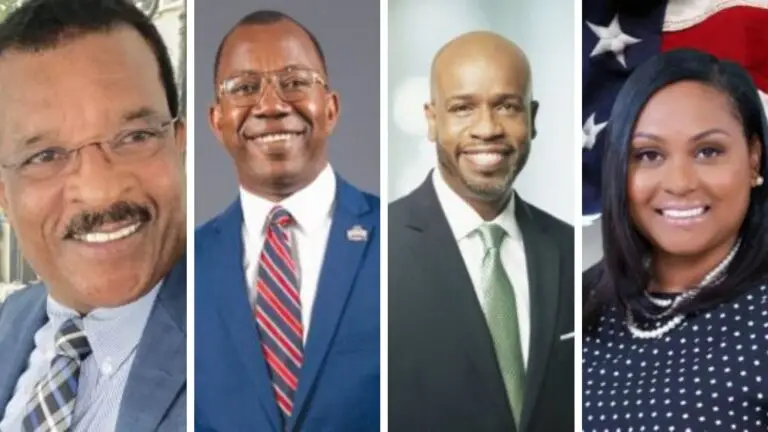As the countdown to the U.S. elections intensifies, South Florida is buzzing with political fervor. In Lauderhill, affectionately dubbed “Jamaica Hill” for its vibrant Jamaican community, streets were alive this past Saturday with supporters rallying for their candidates, brandishing colorful banners and distributing pamphlets.
Among the most prominent figures is Kamala Harris, the sitting Vice President of the United States. With aspirations to become the first female president, Harris is gearing up for a heated showdown against former President Donald Trump on November 5. The stakes are high, as Harris, a Democrat with Jamaican heritage, aims to rally a diverse coalition of voters.
In addition to Harris, local elections feature several Jamaican candidates vying for office, including Denise Grant and Mark A. Douglas, who are contesting for the mayoral positions in Lauderhill and Sunrise, respectively. Their candidacies underscore the growing political engagement within the Jamaican community in South Florida.
Marlon Hill, a prominent Jamaican attorney and member of the RallyForKamala organization, is optimistic about Harris’s chances. He notes the campaign is gaining momentum and is expanding its reach across key demographics.
“The energy around the campaign is building, creating a broad coalition of support. This dynamic is crucial as we approach election day,” Hill stated in an interview.
Hill emphasized that RallyForKamala’s primary efforts are concentrated in battleground states, where polls indicate a tight race between Harris and Trump. “We’re focusing on Caribbean-American families, first-time voters, and individuals who have participated in previous elections. Voters of Caribbean descent can play a pivotal role in states like Pennsylvania, North Carolina, Georgia, and Texas,” he explained. In a contest where every vote matters, Hill believes these contributions will be vital in pushing Harris and her running mate, Tim Walz, toward victory in the Electoral College.
Unlike many countries, the U.S. presidential election is determined by the Electoral College, where a candidate must secure 270 votes to win. In 2016, Trump lost the popular vote to Democrat Hillary Clinton but triumphed in the Electoral College.
Winston Barnes, a veteran commissioner in Miramar, another city rich in Jamaican culture, is hopeful that the region’s diverse population will rally behind Harris, despite her absence from the local campaign trail.
“South Florida has the potential to significantly impact the election outcome, especially given its sizable Haitian-American and Puerto Rican communities. It’s essential that these voters and English-speaking Caribbean-Americans cast their ballots in their best interests,” Barnes remarked.
Lauderhill also sees notable Jamaican figures like broadcaster John “John T” Hodgson and Richard Campbell entering the race for city commissioner, further exemplifying the community’s dedication to civic engagement and representation.
With just days left until the election, the energy and commitment displayed by South Florida’s Jamaican community highlight the crucial role they may play in shaping the future of American politics.

